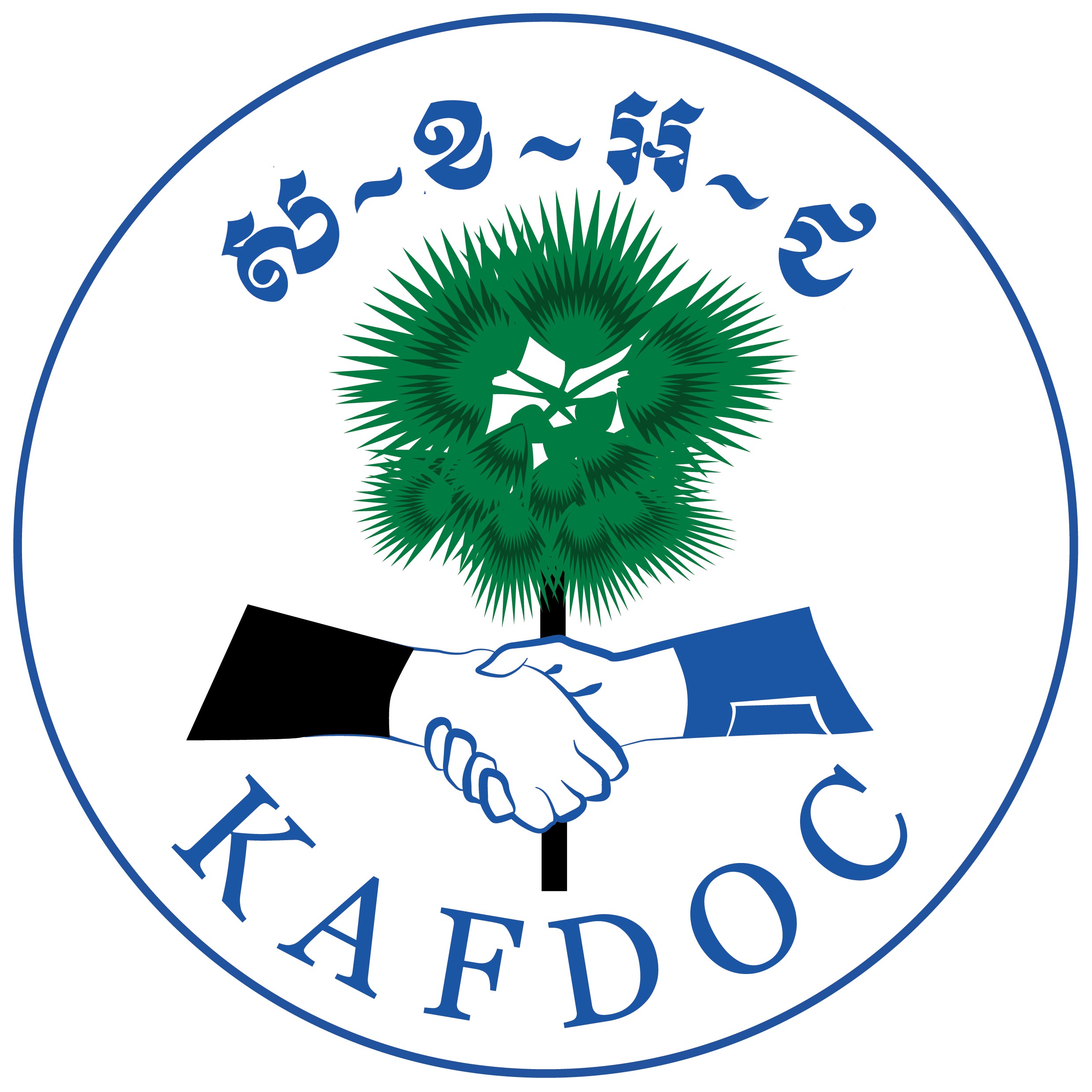KAFDOC is a non-profit, non-patrician, and non-religious belief local organization that works with poor people around Cambodia, especially in rural areas of the Cambodia. Supporting and working with base community partners that work with glorifying to the right based such as women rights , rights to get food, rights to access education and women decision to guarantee to the community lives with superiority, equality and fairness between men and women to get fair and good governance. Vision Cambodia where people have equal rights, gender equality, good governance and quality of live. Mission KAFDOC works closely with disadvantaged population, children groups, women and farmers. Our mission is to improve living conditions through active participation to target groups in sustainable natural resources management, quality education improvement, income generation activities, health care, good governance process, disaster management, children rights, gender promotion, community based ecotourism and increased agricultural production. Goal: Ensuring equal rights, gender and opportunities of disadvantaged groups, women, children and communities through effective and sustainable natural resource management, agriculture productivity, good governance, basic education and women representation in politics. Core value: Review strategy of KAFDOC focuses on staff members’ values and identification of KAFDOC that ensure human rights implantation, gender equity promotion, accountability and transparency, participation and networking support. History / Background Khmer Association for Development of Countryside (KAFDOC) is a not-for-profit Cambodian NGO located in OrruseyII village, SankatOrruesy, Kratie Province. KAFDOC was founded on October 23rd, 1993 and was registered by the Ministry of the Interior on December 13th, 1994. KAFDOC began working in the PrekPrasop, ChitBorey and SamBor district and Kratie Town of Kratie province. KAFDOC’s programs focus upon integrated development within many rural communities. We give particular assistance to women, children and youth who live in economic hardship and who face constant barriers to their empowerment, social participation and development in rural areas. KAFDOC aims to see Cambodia living in peace, its people equipped with the skills necessary for self reliance, enjoying an ever-improving standard of life. KAFDOC implements many activities in partnership with donors, C/INGOs, relevant institutions, target communities and local authorities. Target groups are offered programs focusing on improving their education, economic/ income generation, their healthcare, agriculture, good governance, flood disaster, Children Rights and gender promotion. Our main target group is vulnerable and poor women, children, disable people, famer groups and fishery groups who are living in remote rural areas. In addition, KAFDOC enhances target communities’ capacity building, with particular focus upon vulnerable women, children and Community Based Organization groups. We aim to achieve this goal through increased better health care, Natural Resources Management (NRM), livelihood and disaster Risk reduction (DRR). KAFDOC has experienced in working with women, children, youth and CBOs groups for many years, supported by The Asia Foundation, Actionaid Cambodia, Oxfam Great Britian, Disaster Preparedness European Commission’s Humanitarian Aid Department (DIP-ECHO) through Actionaid, CCFP, UNDP, Canada Fund, ACR, Aus Aid, EU ASAC, CFI,Save the Children and KOICA, The Asia Foundation(TAF), Henrich Boll Foundation(HBF) and Educo Cambodia.
| Sector | |
|---|---|
| Countries | |
| Contacts |
|
| Addresses |
|
| URL for organisation leaflet | https://www.kafdoc.org/brochure-and-leaflet/ |
| Online | |
| Keywords |

